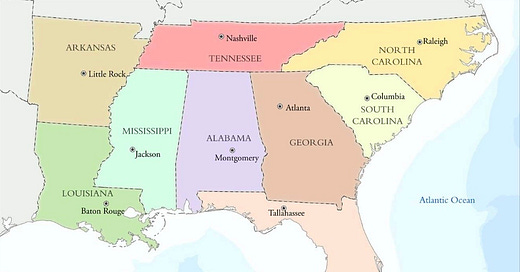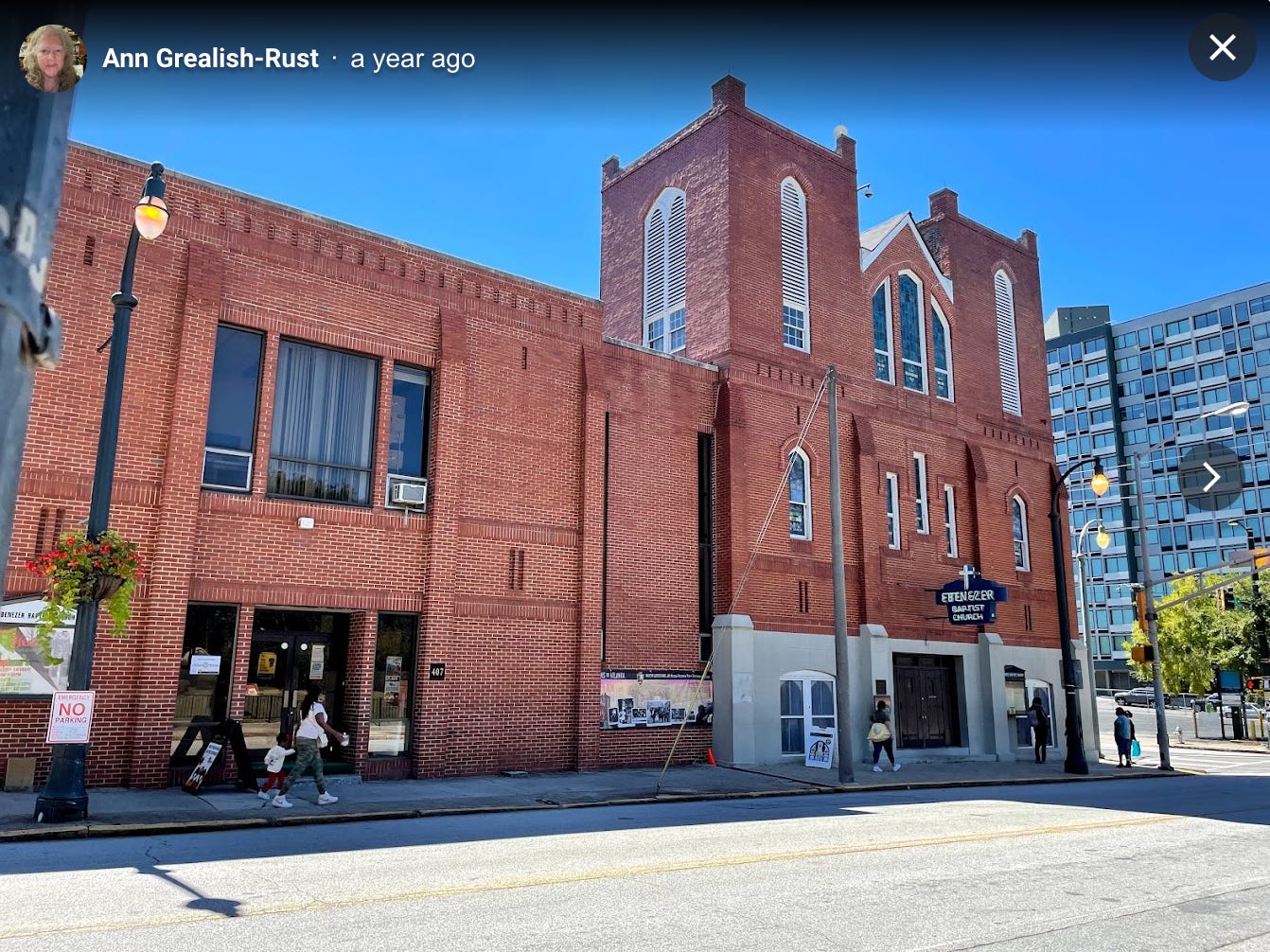A Southern Tale of Grace
The South is a land of contrasts. Sometimes you get rampant racism, and other times you get warm humanitarianism
I’m just too sick of politics in general, and the Former Guy in particular, to spill inky-electrons on them again this week, so a respite from that to highlight some good in the world.
To paraphrase Taylor Swift, back when we were still trying to be better people, the South was tearing itself apart. Alabama’s governor, the lately-repentant George Wallace, threatened black schoolchildren, and Georgia’s governor, Lester Maddox, defended his restaurant against Black, would-be patrons, by standing in the doorway with an ax handle. We all know those stories because they continue to inflame our sense of decency. They remind us of people at their worst. There are less commonly told tales of grace and redemption. Here’s one such story.
My late friend and colleague, the lovable Southern defender-of-the-faith and American values, Wyc Orr (you kind of have to love Southern names), told a coming of age story set in the early Sixties in Atlanta.
It seems there was a lot of talk about a new pastor at Ebenezer Baptist Church. He was following in his father’s footsteps in the same way that a politician’s son who seeks office is going into the “family business.” The Reverend Dr. Martin Luther King Jr had assumed his father’s pulpit, and was the talk of the town; a town that found itself at the epicenter of the burgeoning civil rights movement. Atlanta, reliably the best-marketed city in the South, billed itself as “The City Too Busy To Hate,” a statement of conceit and hubris, sure, but it was said from the heart of the emerging coalition of Black and White leaders there.
Ivan Allen was the White mayor (one of the last), and he knew the only way to govern Atlanta was to get the cooperation of the big-wigs of commerce, like Citizens and Southern Bank (banks had not yet consolidated, and were still a center of local policy, politics, and economic growth, accountable to local ownership and oversight), and the Coca Cola Company (which, until the rise of Delta Airlines, UPS, Georgia-Pacific, Mercedes-Benz, and Porsche, was the biggest and most influential corporate entity there).
The city had always been run by White men, but its growing and restless Black population was demanding a seat at the table. MLK led that successful effort.
One Sunday when he was 16, Wyc and a friend concocted a scheme whereby they’d get go to Ebenezer and see Dr. King preach. Wyc said he was going to church with his friend’s family that morning, and his friend told the same lie to his own parents. Free at last (sorry), they drove downtown to “Sweet Auburn” Street, and crept into the back of the packed church.
Coretta Scott King, the reverend’s wife, spotted the only two White faces in the congregation and insisted they move up front with her. So much for discretely observing the service.
When Dr. King finished his sermon, the subject of which has long since been forgotten due to the events that followed, the boys rose to leave. The service had run a little longer than their home churches, and they knew they needed to rush if they were to make it to lunch with their families, lest the game be up, and their deceit revealed. As they made the move to go, the choir fired up and the entire congregation rose to its feet to celebrate the day in raucous gospel-style. They were trapped. The music went on for most of the next hour, after which Mrs. King led them to the Fellowship Hall for refreshments. The little outing they had hoped to accomplish without drawing attention to themselves had gone terribly—delightfully in the retelling, though not at the time—wrong.
The drive back up to Gainesville would take an hour. They were totally busted. The boys got in trouble. They lied, but Wyc, who would go onto a big career as a litigator, state legislator, Common Cause board member, and contributor to ProgressiveVoices.com, told his folks that they lied in service of a higher goal—and they had in fact gone to church, just not the one they told their parents about. They were grounded until they could grow full beards.
The South is a land of dichotomies. A rich history of fabulous cooking and famous hospitality, and also a place that enslaved other human beings, and fought a bloody war to maintain that “right.” Like everywhere else, in the South you’ll find acts of selflessness as well as selfishness.
We lost Wyc to pancreatic cancer a few years ago. The last time I saw him, he was delivered by ambulance in a wheelchair to receive a lifetime achievement award for his civic commitment. He was a fighter till the end…and a great storyteller!
©2023 Jon Sinton






It just feels like another time and another place. Today those same states and many others with Republican legislatures are trying to wipe out the teaching of American history of race relations and taking a deep sword cut at the rights of trans children and trans adults. The South has certainly risen, and some of it has an ugly face that is all too familiar.
A better place we could have been, but again we're mugged by the face of disgrace.